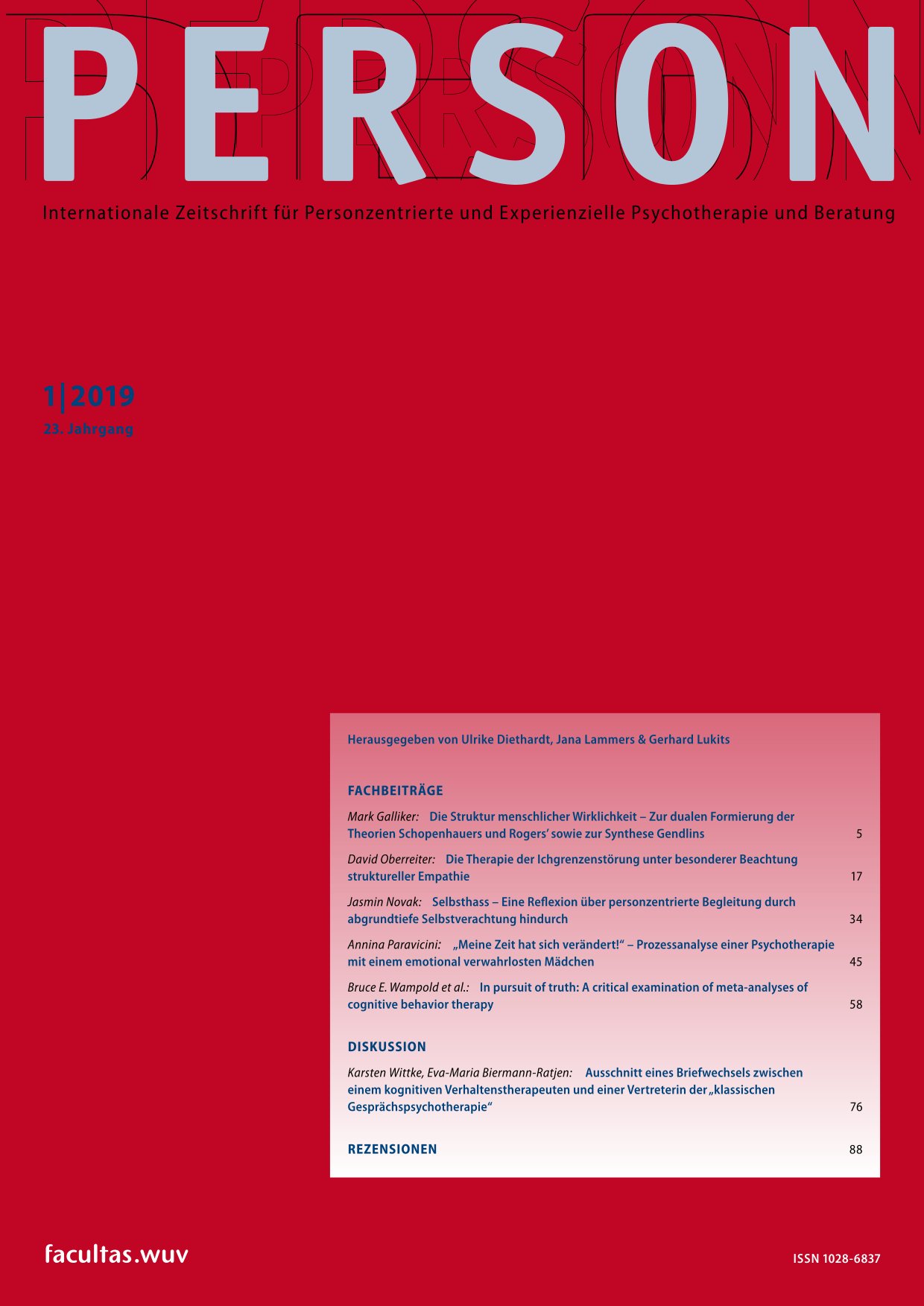In pursuit of truth: A critical examination of meta-analyses of cognitive behavior therapy
##plugins.themes.bootstrap3.article.main##
##plugins.themes.bootstrap3.article.sidebar##
Abstract
Objective: Three recent meta-analyses have made the claim, albeit with some caveats, that cognitive-behavioral treatments (CBT) are superior to other psychotherapies, in general or for specific disorders (e.g., social phobia). Method: The purpose of the present article was to examine four issues in meta-analysis that mitigate claims of CBT superiority: (a) effect size, power, and statistical significance, (b) focusing on disorderspecific symptom measures and ignoring other important indicators of psychological functioning, (c) problems inherent in classifying treatments provided in primary studies into classes of treatments, and (d) the
inclusion of problematic trials, which biases the results, and the exclusion of trials that fail to find differences among treatments. Results: When these issues are examined, the effects demonstrating the superiority of CBT are small, nonsignificant for the most part, limited to targeted symptoms, or are due to flawed primary studies. Conclusion: Meta-analytic evidence for the superiority of CBT in the three meta-analysis are nonexistent or weak.

